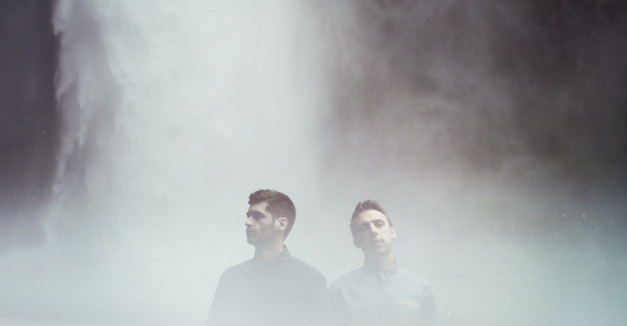Electronic Dance Music, perhaps more than any other music genre, is reliant on its Internet community and the free-flowing exchange of ideas that it provides.
Instead of being forced to adapt to the changing music industry landscape brought on by the internet, as is the case with most other genres, EDM was born of it. With the low cost of equipment and burgeoning popularity, a budding producer can be discovered from their bedroom.
Few understand how that can impact an artist’s creativity and popularity as well as Seattle-based duo Odesza, comprised of Harrison Mills and Clayton Knight.
“The online community has been really good to us,” Knight says. “Thats a lot of the [reason why] we are where we are right now.”
They find themselves now on the cusp of stardom in EDM circles. The duo initially met in 2012 on the campus of Western Washington University. In the two years since, numerous number one rankings on Hype Machine charts and millions of hits on major streaming websites have contributed to their meteoric rise.
Without the benefit of a strong internet-based EDM community, they may have only had delusions of playing with such enormous acts as Pretty Lights, or of selling out multiple stops on a headlining tour of their own.
The pair perform at Vega on Friday night. Tickets are $12 in advance and $15 the day of the show. RSVP here.
Knight explains that walking among the EDM giants and performing at major festivals almost necessitated that they amp up their set. He and Mills are fond of the energy present when playing to that kind of crowd, the trippy, sweaty hoard that amasses at throbbing DJ sets. Its their association with the heavier music of the genre that makes them uncomfortable, the label that is “EDM”.
“[We] kinda like to have a range that we can reach from. We try to stay away from that name as much as possible.”
On their aptly titled new album, In Return, Odesza makes a calculated departure from the weighty club music that has recently dominated their rotation back to the ambient, melodic music on which they cut their teeth.
“We had been doing a lot of heavier shows,” Knight says. “When we went about writing, we wanted to [scale it back] and do something a little more low key. Kinda went back to what we fell in love with.”
Influenced by melodic acts like M83 and Four Tet, they began creating their own brand of soundscapes that feel more like soaring into the stratosphere than being crushed under the weight of a one-ton beat.
The result on their latest LP is the atmospheric amalgamation of hip-hop, R&B, wavy synth and pounding beats found on cuts like “All We Need,” a soulful, bouncy pop track. In Return sticks to that intimate, theatrical sound throughout, separating Odesza from many of its noisey, beat-dropping contemporaries.
“We make such a broad range of music,” Knight says. “Some of it is pretty heavy, but a lot of it is more headphone music than live bangers.”
Knight concedes that the intense energy of an EDM crowd helps get their juices flowing. Beefing up their set in preparation for the live show is part of the deal. What defines a proper electronic dance party better than an onslaught of thickness?
Odesza stocks its arsenal with an array of its own remixed tracks. They reimagine anything from hip hop to soul to indie rock. Knight says that they prefer to work solely with stems — the individual tracks of a deconstructed song — rather than using the completed product as a starting point. Unfamiliarity gives them more room to craft an original take.
“If I found out I really like the track and have an attachment to it, I can’t really manipulate it the way I want to,” Knight says. “I can’t really add my own sound. You gotta find a piece of it that you can really work with and [go] in a new and exciting direction.”
Producing a live show is not only about creativity, but about connecting with the audience, creating something that will set the room aflame. Knight says that, like any other producer, they attempt to manipulate a stem beyond recognition so as to claim ownership, rather than running a straight loop.
Sometimes, though, leaving a kernel of the original helps crowd reaction. Maybe Local Native’s Taylor Rice and his wail from “Airplanes” appears, sliced to hell and reassembled around the throbbing mix.
“Those are nice to get the crowd [going],” Knight says. “They can kinda feel that connection with a little familiarity.”




